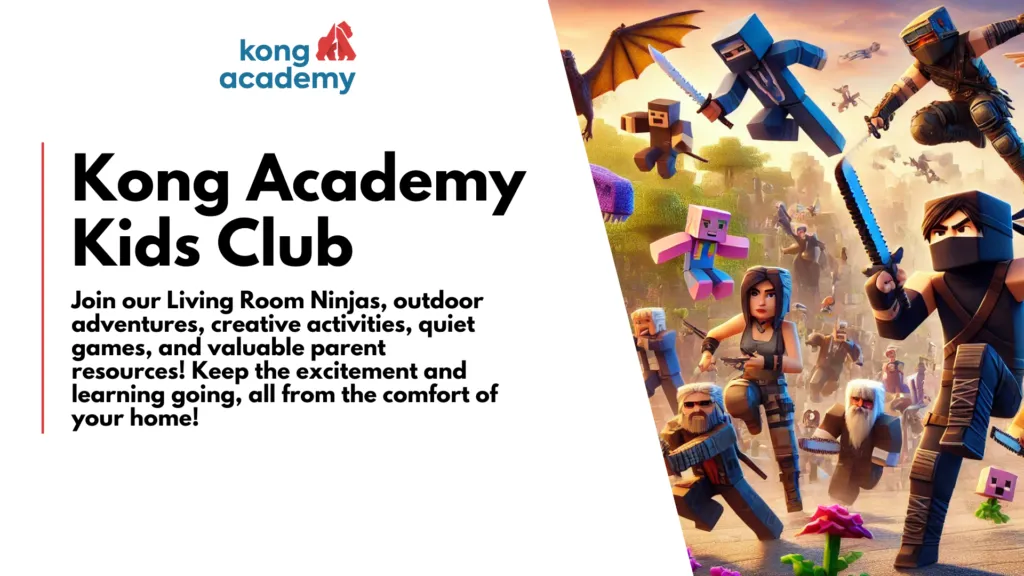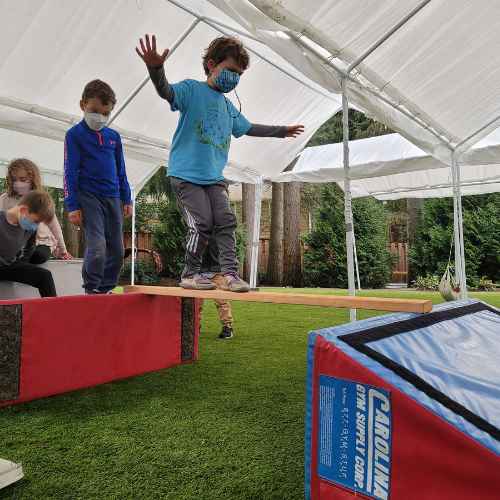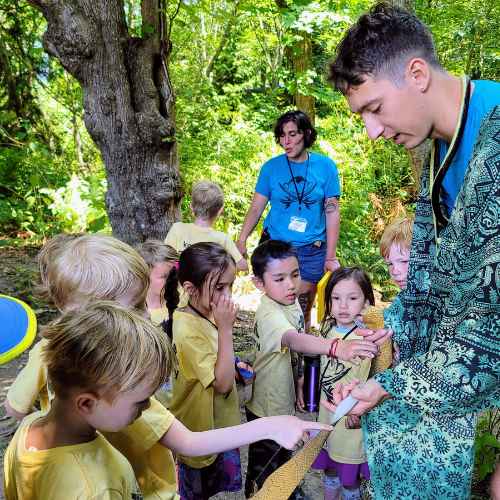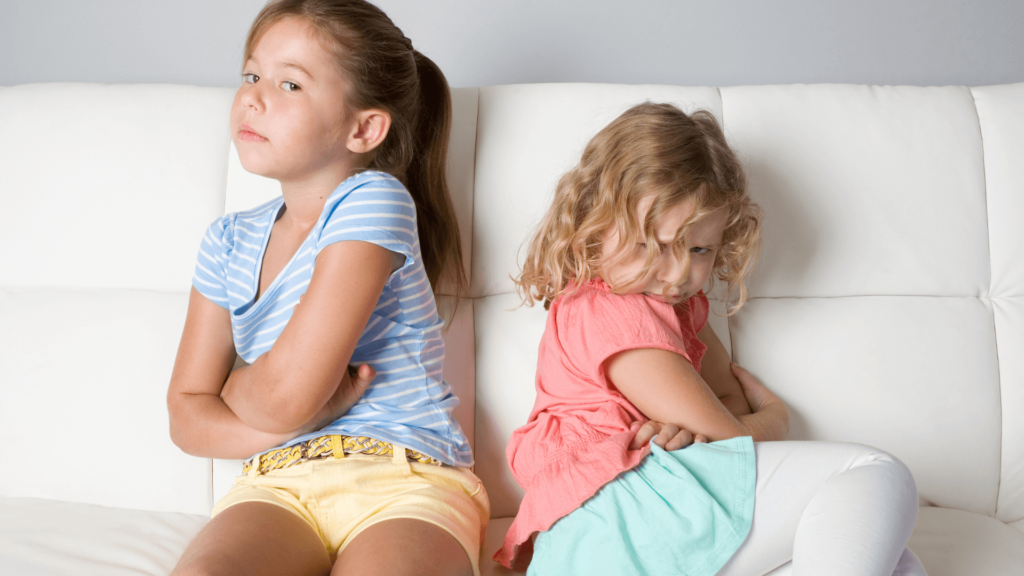
Teaching your kids how to resolve conflicts without needing to run to you is a vital skill that contributes to their overall development. Conflicts are bound to arise in every child’s life, whether it’s with siblings, friends, or classmates. Instead of stepping in to mediate every dispute, you can empower your children to handle disagreements independently. Not only does this foster emotional intelligence and social growth, but it also enhances problem-solving skills.
In this post, we’ll explore the significance of conflict resolution, common sources of conflict among kids, strategies you can use to encourage independent problem-solving, and practical tips for parents like you to help your children navigate challenging situations.
Conflict Resolution for Kids
Conflict resolution is a critical skill that benefits children throughout their lives. It teaches them how to approach disagreements constructively, maintain healthy relationships, and express their emotions in ways that foster understanding rather than discord. Whether it’s an argument over toys or a misunderstanding with a friend, conflicts are an opportunity for growth.
Teaching your children to resolve conflicts independently has long-lasting benefits that extend into adulthood. Kids who learn to navigate conflict are more likely to develop positive social skills, maintain stronger friendships, and avoid becoming involved in unnecessary confrontations. They also tend to have higher emotional intelligence, meaning they can recognize and manage their own emotions and understand the emotions of others more effectively.
Why Teaching Your Kids How to Resolve Conflicts is Important
Conflict resolution helps children handle setbacks and frustrations in a way that fosters personal growth. Disagreements and challenges are unavoidable in life. By learning how to manage these situations early on, children build resilience—a quality that will help them face difficulties throughout their lives.
Resilience enables your kids to bounce back from setbacks, cope with stress, and continue moving forward even when faced with obstacles. This capacity to adapt and recover is crucial not only for their emotional well-being but also for their academic and social success.
Furthermore, conflict resolution promotes autonomy. Children who can resolve their own disputes become more self-sufficient, confident in their ability to tackle challenges, and better equipped to make decisions on their own. This independence is empowering and plays a key role in child development.
Common Sources of Conflict Among Children
As a parent or caregiver, it’s essential to recognize the common sources of conflict among your children. By understanding these sources, you can guide them more effectively toward resolution. Let’s explore some frequent causes of disagreements:
- Competition for Resources: Children often find themselves in conflict over shared resources, like toys, attention, or even the best spot on the couch. When two kids want the same item or need the same person’s time, disagreements are bound to arise. This type of conflict can happen between siblings, friends, or classmates, with sibling rivalry frequently stemming from competition for possessions or your personal attention.
- Differing Opinions: As children develop their personalities and viewpoints, they may disagree with others over various matters, from what game to play to who gets to lead a group project. Arguments can emerge over differing interpretations of rules and disagreements about fairness.
- Misunderstandings: Since young children are still developing their communication skills, misunderstandings are a frequent cause of conflict. Simple miscommunications can quickly escalate into larger disagreements. Arguments may also arise when one child unintentionally hurts another’s feelings or doesn’t communicate their intentions clearly.
- Feelings of Exclusion: Children are highly sensitive to social dynamics, and conflicts can arise if one child feels left out or unfairly treated in a group setting. These feelings often lead to resentment and further conflicts down the line, causing them to lash out or argue with others as a way of expressing their emotions.
By familiarizing yourself with these underlying causes of conflict, you can better assist your children in understanding and resolving their disputes, fostering their emotional growth and interpersonal skills.
Understanding Conflict and Its Impact On Kids
Teaching independent conflict resolution starts with understanding the nature of conflict itself and how it impacts children’s emotional and social development. When children experience conflict, it affects not only their social relationships but also their emotional health and overall family life.
However, it doesn’t have to be a negative experience. In fact, when approached constructively, conflicts can be teachable moments that strengthen relationships and build important life skills.
How Unresolved Conflicts Impact Your Child’s Social Relationships and Family Life
Unresolved conflicts can strain your child’s relationships and cause emotional distress. In friendships, ongoing disputes may lead to feelings of resentment or alienation. In families, repeated arguments can create a tense home environment. Children who struggle with conflict resolution may withdraw from social situations, become anxious about interacting with peers, or develop negative behaviors like bullying or aggression. These issues can damage your child’s self-esteem and emotional well-being.
On the bright side, children who learn to resolve conflicts positively tend to have stronger, more fulfilling relationships. They become better at communicating their needs and emotions, leading to greater understanding and trust among peers, siblings, and adults. These kids are more likely to experience a sense of belonging and connectedness in their social circles and are more resilient when facing new challenges.
In family life, effective conflict resolution can lead to more harmony and less stress for both children and parents. By teaching your children to handle disagreements constructively, you’ll spend less time mediating arguments and more time fostering positive interactions. Your kids will feel empowered to address issues independently, reducing tension and improving overall family health.
The Role of Self-Regulation & Keeping Emotions In Check
Self-regulation plays a critical role in conflict resolution. Children, especially younger ones, often struggle to control their feelings, leading to impulsive reactions like yelling, crying, or physical aggression during conflicts. Learning self-regulation techniques is crucial for helping your children manage their emotions and respond to disagreements calmly and thoughtfully. Kids who struggle with self-regulation often find it challenging to handle their emotions during conflicts, resulting in impulsive or aggressive reactions.
Teaching self-regulation involves helping your children recognize when they are becoming upset and providing them with tools to manage their emotions. Techniques such as deep breathing, counting to ten, or taking a break can help your kids calm down before reacting. Over time, these strategies will enable your children to gain control over their emotional responses, leading to more successful conflict resolution and healthier interactions with others.
Strategies for Teaching Conflict Resolution to Kids
Helping your children develop conflict resolution skills requires a proactive and structured approach. It’s not enough to simply tell them to “work it out” because, most likely, they don’t know how to. They need specific strategies and guidance to learn how to resolve conflicts effectively.
Here are some effective conflict resolution strategies that promote positive behaviors during disagreements and encourage your kids to solve problems independently:
Build Debate Skills to Handle Disagreements
Teaching your children debate skills can empower them to handle disagreements more effectively. This doesn’t mean formal debate, but rather the ability to articulate their thoughts, listen to others, and come up with compromises.
By learning how to express their needs and opinions clearly, your children can approach conflicts with more confidence and less frustration. Encouraging the use of “I” statements, such as, “I feel upset when you take my toy without asking” helps them communicate their emotions without blaming the other person. This reduces defensiveness and promotes mutual understanding.
Debate skills also include active listening, where children learn to focus on what the other person is saying without interrupting. This skill is crucial for resolving conflicts, as it allows children to fully understand the other person’s perspective before responding.
You can practice simple debate techniques with your kids by asking open-ended questions about their feelings and thoughts on a resolution. This not only builds their communication skills but also reinforces the importance of empathy and understanding others’ perspectives.
Promote Positive Behaviors During a Conflict
Encouraging positive behaviors during conflicts can significantly improve how your children resolve disagreements. Some key behaviors to emphasize include:
- Active Listening: Teach your children the importance of listening to the other person’s viewpoint without interrupting or jumping to conclusions. Active listening promotes understanding and respect during disagreements.
- Empathy: Encourage your kids to consider how the other person might feel and what they might need. Developing empathy helps them resolve conflicts fairly and compassionately.
- Problem-Solving: Teach your children to focus on finding solutions rather than dwelling on the problem. Encouraging problem-solving during conflicts helps them adopt a collaborative mindset.
- Respectful Communication: Teach your kids how to express their feelings and needs respectfully. Avoiding name-calling, yelling, or other negative behaviors keeps the conflict constructive.
You can promote these behaviors by modeling them in your own interactions and by praising your children when they handle conflicts well. Over time, these positive behaviors will become ingrained, enabling your kids to resolve disagreements respectfully and independently.
Encourage Your Kids to Resolve Conflicts Independently
One of the most important aspects of teaching conflict resolution is encouraging your kids to resolve conflicts independently. While it can be tempting for parents and caregivers to step in and mediate every argument, giving your children the space to work things out on their own fosters independence and self-confidence.
When children are allowed to resolve conflicts on their own, they learn to trust their judgment and develop critical thinking skills. They also become more aware of the consequences of their actions, leading to greater responsibility for their behavior.
However, caregivers should still be available to offer guidance when needed, especially in more challenging situations or if the conflict escalates. It’s important to strike a balance between offering guidance and allowing your children to work through conflicts on their own and only stepping in when necessary.
Know When to Step In and When to Let Your Kids Resolve Conflicts On Their Own
Finding the right balance between stepping in and letting your kids resolve conflicts on their own is key to helping them grow into independent problem-solvers. While it’s crucial to allow your children to work through minor conflicts without adult intervention, there are times when parental guidance is necessary.
In most cases, it’s best to give your children the chance to resolve conflicts themselves. This allows them to practice their skills and gain confidence in their abilities. However, if you notice a conflict escalating to physical aggression or becoming emotionally damaging, it’s time to step in. By intervening at the right moments, you can help prevent harmful situations and reinforce positive conflict resolution strategies.
Remember, every child and situation is unique, so trust your instincts and pay attention to the specific circumstances. With your support, your kids will develop the skills they need to handle disagreements effectively and maintain healthy relationships.
Addressing Challenging Behaviors and Poor Self-Regulation Skills
Sometimes, despite your best efforts, your children may struggle with challenging behaviors or poor self-regulation skills that make resolving conflicts difficult. Children with poor self-regulation skills or those who exhibit challenging behaviors, such as frequent outbursts or refusal to compromise, may need additional support in learning how to resolve conflicts constructively.
#1 Identify Challenging Behaviors in Children
Challenging behavior during conflicts, such as aggression, shouting, or refusal to listen, can often be a sign that a child is having difficulty managing their emotions. It’s important for parents and caregivers to identify these behaviors early on and address them before they become ingrained. Children who struggle with emotional regulation may feel overwhelmed during conflicts, leading them to react impulsively rather than calmly.
By recognizing the underlying causes of challenging behavior, such as frustration, anxiety, or fear of not being heard, you can offer more targeted support to help your children manage these emotions and develop healthier conflict resolution strategies.
#2 Improve Your Child’s Self-Regulation Skills
Teaching your children how to regulate their emotions is a critical part of conflict resolution. You can equip them with specific techniques to manage their emotions effectively, such as:
- Deep Breathing: Deep breathing helps children calm down when they’re feeling angry or upset. Encourage your kids to take slow, deep breaths to regain control of their emotions during conflicts.
- Mindfulness Exercises: Simple mindfulness practices, like focusing on the present moment or using positive affirmations, can help your children stay centered during disagreements. Practicing mindfulness with your kids will give them the tools they need to remain calm and thoughtful.
- Taking Time-Outs: Encourage your children to take a break from the conflict if they feel overwhelmed, giving them time to calm down and reflect on the situation before returning to the discussion. This technique allows them to pause and think before reacting, reducing impulsive or aggressive behaviors.
By helping your children practice these techniques during calm moments, you’ll reinforce the importance of managing emotions when resolving conflicts. Over time, these strategies will become second nature, enabling your kids to solve disagreements with greater ease and control.
#3 Role-Play Scenarios to Practice Conflict Resolution
Role-playing is an engaging way to teach your children conflict resolution skills in a safe, controlled setting. You can create scenarios involving common conflicts, such as disagreements over a toy or misunderstandings with a friend. Guiding your children through different ways to resolve these issues will help them practice positive behaviors and discover the most effective strategies for various situations.
This hands-on approach allows them to gain confidence in their conflict resolution abilities and apply these skills to real-life situations.
Practical Tips for Parents and Caregivers
As a parent, you have the power to shape your child’s approach to conflict resolution. By modeling healthy strategies and fostering an environment that encourages growth, you can equip your children with the skills they need to navigate disagreements effectively. Here are some practical tips to help you get started:
Be a Role Model for Your Children
Your kids learn by watching the adults around them, so make sure to set a positive example when resolving conflicts. Whether it’s a small argument between parents or a sibling dispute, your children will take cues from you on how you’re handling these situations. By demonstrating calm communication, active listening, and empathy, you provide them with a blueprint for handling disagreements in their own lives.
When you model healthy conflict resolution strategies, your children are more likely to adopt these behaviors and handle disagreements calmly and respectfully. Showing empathy, respectful communication, and problem-solving during conflict sets the foundation for your kids to follow suit in their interactions. Remember, you’re their greatest teacher!
Create an Environment that Encourages Conflict Resolution
A home that encourages open communication and mutual respect provides children with the foundation they need to resolve conflicts. Foster this environment by encouraging your children to talk about their feelings, offering support when needed, and emphasizing the importance of cooperation over competition. By setting these expectations early on, your children will develop a natural tendency to resolve conflicts rather than avoid or escalate them.
Encourage Ongoing Practice and Growth
Conflict resolution is an ongoing process. Encourage your children to continue practicing their skills in various situations, whether at school, with friends, or at home, even after a conflict is resolved. Praise their efforts, provide constructive feedback, and remind them that making mistakes is a natural part of learning. The more practice they get, the more confident they’ll become in their ability to handle any conflict that comes their way.
With your guidance and support, your children will develop the essential life skill of conflict resolution, enabling them to maintain healthy relationships and navigate challenges effectively.
Additional Tools
In addition to hands-on teaching, there are many tools and resources available to help your children learn how to resolve conflicts.
There are numerous books for children that explore the topic of conflict resolution. These books often present relatable scenarios and characters that help children understand how to navigate disagreements in a positive way. Some popular titles for young children include I Can Handle It by Laurie Wright and Hands Are Not for Hitting by Martine Agassi.
Conflict resolution is a valuable life skill that empowers children to navigate social interactions effectively and build strong relationships. By teaching your children the art of resolving conflicts, you’re equipping them with the tools they need to become more resilient, self-reliant, and empathetic individuals.
At Kong Academy in Seattle, Washington, we believe in empowering kids through play and movement to develop a growth mindset and the essential skills needed to thrive. Our programs focus on building social and emotional intelligence, helping children become confident problem-solvers who can handle any challenge that comes their way.
If you’re looking for a fun and engaging way to support your child’s development, look no further than Kong Academy. Inquire today to learn more about our innovative programs and how we can help your child unlock their full potential. Together, we can create a brighter future for our children and the world they will inherit.
GET Access to the ULTIMATE PLAY DATE PACKAGE (Value: $49) for FREE!
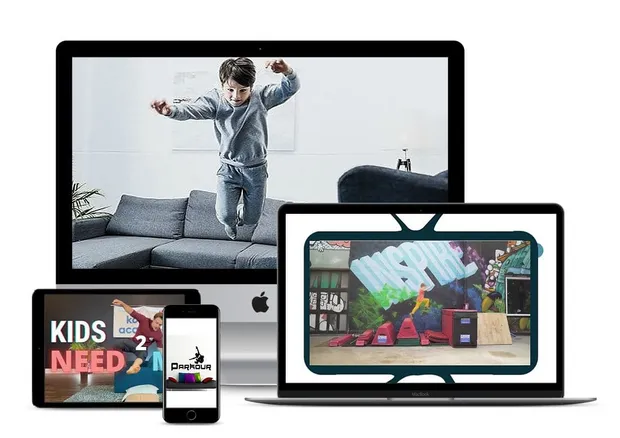

7-Day Crystal Shard Adventure
Unleash your child’s potential with our 7-day crystal shard movement adventure!

